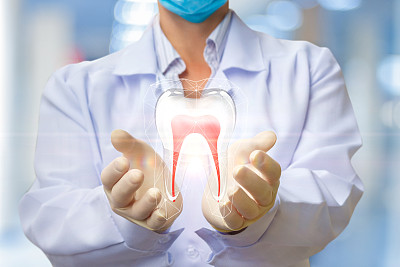Summary: Tooth extraction is a critical dental procedure that plays a vital role in maintaining both dental health and overall well-being. This article delves into the process of tooth extraction, its significance in preventing further dental issues, addressing the psychological impacts of tooth loss, and the steps necessary for post-extraction recovery. By understanding these dimensions, individuals can appreciate the necessity of tooth extraction and make informed decisions regarding their dental care.
1. Understanding the Tooth Extraction Process

Tooth extraction is typically performed by a dental professional and involves several structured steps. Initially, the dentist will conduct a thorough examination, which may include X-rays, to assess the condition of the tooth and surrounding bone structure. This evaluation is critical for determining the complexity of the extraction and planning the most effective approach.
Once the examination is complete, the dentist will discuss the extraction process with the patient, explaining what to expect, including anesthesia options. Local anesthesia is commonly used to numb the area around the tooth, ensuring that the patient does not experience pain during the procedure. In some cases, sedation may be recommended for patients with dental anxiety.
During the extraction, the dentist uses specialized instruments to loosen the tooth from its socket in the jawbone and then removes it carefully. Depending on the tooths condition, the extraction may be straightforward or complicated, necessitating more intensive methods, such as cutting through the gum or bone. Post-removal, the dentist may place gauze to control bleeding and provide aftercare instructions.
2. Importance of Tooth Extraction for Dental Health
One of the primary reasons for tooth extraction is the prevention of further dental complications. Teeth that are severely decayed, infected, or damaged can contaminate neighboring teeth and lead to more significant oral health issues. By removing problematic teeth, patients can prevent the spread of infection and maintain their dental structure.
Moreover, impacted wisdom teeth, which often do not have enough space to emerge properly, can cause pain, swelling, or damage to adjacent teeth. Extracting these teeth can alleviate discomfort and prevent dental crowding, ensuring that other teeth remain aligned and healthy.
Furthermore, tooth extraction can be necessary following orthodontic assessments. In certain cases, to create room for movement, especially in the orthodontic treatment of crowded teeth, extraction becomes essential. Proper alignment of teeth enhances not only their appearance but also their function, contributing to overall oral health.
3. Psychological Impact of Tooth Loss
The psychological implications of tooth extraction should not be overlooked. Many individuals may experience anxiety or distress at the thought of losing a tooth, which can stem from concerns about aesthetics and self-esteem. A missing tooth can alter a persons smile, impacting their confidence and social interactions.
Additionally, the sense of loss associated with tooth extraction can also lead to feelings of vulnerability and inadequacy. Patients may find themselves worrying about how others perceive them, which can affect their emotional well-being. Addressing these feelings openly with a dentist can help individuals understand that such procedures are common and often necessary for long-term health.
To counteract negative feelings related to tooth loss, dentists can suggest options such as dental implants, bridges, or dentures, which can provide functional and aesthetic solutions. These replacements can significantly improve a patients confidence and quality of life, helping them regain their sense of normalcy and self-assurance.
4. Post-Extraction Recovery Steps
Recovery after tooth extraction is crucial for ensuring that the mouth heals properly and that complications are avoided. Following the procedure, patients are typically advised to bite down gently on the gauze to help control bleeding. It is also important to rest and avoid strenuous activities for the initial 24 hours.
Post-operative care may include prescribed medications to manage pain and prevent infection. Patients should adhere to guidelines regarding medication intake and follow up with their dentist if they experience unusual symptoms, such as excessive bleeding or swelling.
In the days following the extraction, it is essential to maintain good oral hygiene while being cautious around the extraction site. Patients should avoid straws, spicy food, and hot beverages, as these can disrupt the healing process. Regular follow-ups with a dentist ensure that the recovery is progressing well and that any concerns are promptly addressed.
Summary: Tooth extraction is an essential dental procedure that can significantly impact both dental health and overall well-being. Understanding the process, recognizing its importance, acknowledging the psychological effects, and following proper recovery steps can help patients navigate this important aspect of dental care. Ultimately, being informed allows individuals to make better decisions regarding their oral health.
This article is compiled by Vickong Dental and the content is for reference only.
Vickong Dental
Vickong Dental is a large medical group established in Hong Kong in 2008 by professors from well-known medical universities in Guangdong and Hong Kong, as well as medical doctors from key national '985' universities (including Master's supervisors and senior professors). The chain of branches brings together expert dentists with PhDs and Master's degrees from Hong Kong and Mainland China, committed to providing high-quality dental treatment.
"Vickong Dental Practices the University Motto of 'Healing and Serving Society,' with a Stable Operation for Sixteen Years. It Has Been honored with Hong Kong Enterprise Leaders's Choice,' and is a Global Trusted Implant Center for the Nobel Implant System. Recommended by Hong Kong Metro Broadcast and Guangdong Television, it Serves Customers from Over Thirty Countries and Regions, Gaining the Trust and Favor of Citizens from the Guangdong-Hong Kong-Macau Greater Bay Area and Surrounding Cities.

Thousands of customers' unanimous praise
The most recognized and highly recommended dental service by customers in the Guangdong-Hong Kong-Macau Greater Bay Area
We Ensure You Receive Detailed Care and Attention Here
Hong Kong standards, Shenzhen prices, Your Trusted English-speaking dentists

Vickong Dental Medical-Grade Instrument Disinfection Process
Vickong Dental Medical-Grade Instrument Disinfection Process

Vickong Dental Chain: A Warm and Comfortable Environment for Treatment






Appointment Hours

Q&A
Why choose Vickong Dental?
Vickong Dental practices the university motto 「Medicine to Benefit Society」, with each branch bringing together highly qualified dentists with doctoral and master’s degrees from Hong Kong and the Mainland, and has maintained seventeen years of steady operation。Recipient of 「2024 Hong Kong Enterprise Leaders Brand」, 「2025 Hong Kong Enterprise Leaders Brand」, a Nobel Biocare Global Trusted Implant Center, and a brand recommended by Metro Radio Hong Kong and Guangdong TV。
To date, we have served customers from more than thirty countries and regions,earning exceptionally high word-of-mouth recognition and trusted recommendations from residents across the Guangdong-Hong Kong-Macao Greater Bay Area and surrounding cities
We have eight major branches in Zhuhai、Shenzhen,and a consultation and service assurance center in Hong Kong,so you can book a free consultation at any time for any questions,which is very reassuring.
If I do not accept the quotation after the CT scan, will I be charged??
No! As long as the actual treatment has not started, you will not be charged any fees.
Will there be any additional charges during the treatment process?
No, there won’t be any additional charges. Before treatment begins, we will clearly explain the treatment plan and its corresponding fees. Only after the patient agrees and signs the consent form will we proceed with the dental service.
Can I pay in Hong Kong dollars?
Yes. Vickong Dental accepts payment in Hong Kong dollars. The amount will be converted based on the exchange rate of the day, and the applicable rate will be clearly communicated to you in advance.
Can I reschedule my appointment at any time?
Yes. Please contact us via **WeChat** or **WhatsApp** as early as possible, providing your original appointment time and details, along with your preferred new date and time slot for rescheduling.













